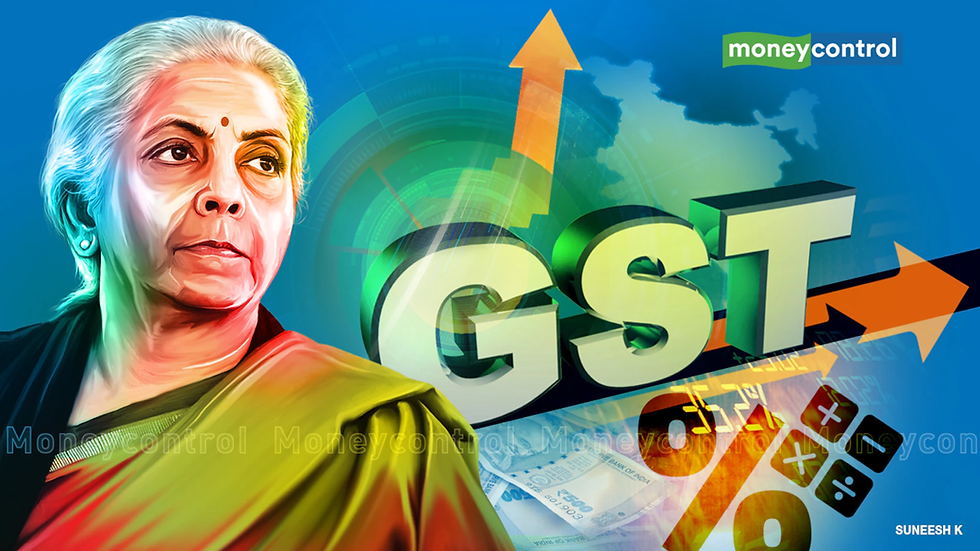PEACE AND CONFLICT: THE CURIOUS CASE OF LOST FREEDOM
- Hindu College Gazette Web Team

- Oct 17, 2023
- 4 min read

image credit: nationalheraldindia.com
The universities and college spaces in India are often engaged in deep and meaningful socio-political activities. Whether it is a protest for the organization of the annual fest in a college, or for demanding the basic necessities, the culture of freedom of speech and expression in the college spaces is something that breeds democracy on a larger front. However, what happens when the administration comes out with a mandatory undertaking asking its students to not engage in protest? Funded by SAARC nations, the situation in South Asian University in Chanakyapuri, Delhi carries the vision of building a culture of understanding and regional consciousness; nurturing a new class of liberal, bright and quality leadership and building the capacity of the region in science, technology and other disciplines considered vital for improving the quality of life of the people. (1)
However, the ‘General Undertaking’ which the university has mandated its students to sign doesn't quite resonate with these ideals. The undertaking asks the students to ‘neither join any agitation or strike nor participate in any activity that has a tendency to disturb the peace and tranquility of the academic environment.’ (2) The undertaking made its way to the admission guidelines for the session 2023-24. To put it simply, it prohibits the students to engage in any form of protest or strike irrespective of aim and nature.
The students' associations and protests are crucial in channelizing democratic principles as well as in addressing their issues. The South Asian University (hereinafter SAU) witnessed a series of protests and issues pertaining to the faculty and the student body. The university has been actively criticized for the suspension of four faculty members post their connection in a hunger strike conducted by around 22 students. The university accused the faculty members of inciting students and “failing to discharge their duties”. Many have not shied away from calling the university ‘undemocratic’, while a plethora of support statements surfaced for the suspended faculty including a statement by the All India Federation of Colleges and Teachers’ Associations. (3)
There have been other such cases of protests, unsatisfied student bodies, expulsion, and even rustication of students which have been heavily criticized by both students and faculty. In October 2022, a large number of students protested against the administration when their stipend was allegedly reduced. Another case involved an allegation by a student accusing the supervisor of harassment. The President as well as the administration was repeatedly questioned by the unsettled students. When the students did not get any satisfactory response they took it into their own hands but paid the price when some received expulsion notices on November 4, 2023. (4)

image credit: edexlive.com
An interesting understanding of the situation was provided by a student who mentioned the role of the ‘science-social science cleavage’ at play. The student claimed that the university has been ‘full of science faculties’ and that the President, Vice President, and acting Registrar belong to the science discipline has led to a gap between the two aspects. The student further claimed that there has been ‘incompetence and policy failure’ on the part of the university. (4)
Another shocking point that the Undertaking had was a declaration, “I also declare that I am not suffering from any serious/ contagious ailment and/or any psychiatric/psychological disorder.” The statement was called ‘discriminatory’ by students but the administration has a climate that the point pertaining to mental health was incorporated by the university to help and support the well-being and the mental health of the students. (5)
No clear response has yet been provided by the university concerning the ‘anti-protest’ nature of the undertaking.
The Undertaking has sparked a debate among the students forcing them to choose between quality education and rights. The authoritarian nature of the university has shocked and tarnished its image as regressive. It is a clear violation of Article 19 of the Indian Constitution which categorizes the Right to Freedom and Expression as a fundamental right. (6)
Unfortunately, SAU is not the only university that has come up with the ‘anti-protest’ declaration. The University of Madras has also come forward with an ‘anti-protest’ form which has to be signed by the students and parents confirming that the students ‘will not get involved in any protest on the campus, they do not belong to any unit affiliated with any political party, and they won’t remain absent from class without prior permission from the department head.’ If any student is found violating these rules, she or he will be immediately dismissed from the course. Just like the situation in SAU, the students had previously protested for basic facilities such as drinking water. This compulsory form left students with no alternative but to meekly accept the orders. (7)
Silencing student dissent by exploiting the administrative powers, the administration of the college often ignores the death of democracy which accompanies the undertaking. Fortunately, other renowned institutions of this nation, such at the University of Delhi, Jawaharlal Nehru University, Mumbai University, and other private institutions have nurtured the student's right to freedom of speech and expression. These college spaces are a budding ground for the youth, silencing their voices will produce mute citizens who will be exploited by the hand of the powerful, the culture of protest and expression would help this nation grow and stand for what is right.
By: Charvee
Final year graduation student of Political Science, Charvee is an inquisitive girl traversing her way through the complexities of life. An enthusiast of literature, society and politics, she is deeply interested reading and writing. While her brain wanders in the chaos of politics, her heart lies in lanes of literature, one may call her a living paradox.
.






Comments